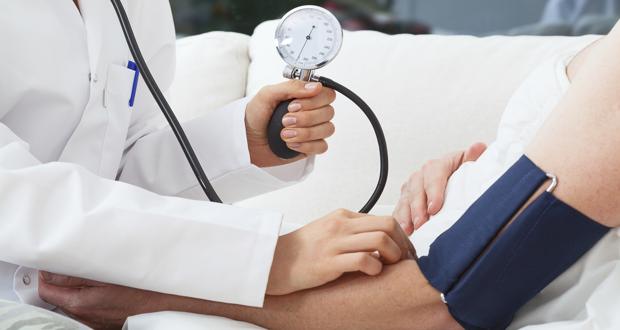Hypertension is considered the silent killer, Indeed, numerous studies have shown that hypertension increased dramatically the risk of heart attack, stroke and other cardiovascular diseases, it is less known that hypertension is also a factor promoting the appearance of senile dementia. The link between high blood pressure, memory impairment is increasingly known and determined by experimental and clinical studies. And we know that early and sustained treatment of high blood pressure will reduce the risk of dementia substantially. And also healthy lifestyle will reduce your risk of high blood pressure-related health problems in the future
7 tips to help you prevent or reduce the risk in your blood pressure.
1. Measure Your Blood Pressure
The home blood pressure measurement is strongly advised today. It is achieved very easily with a powerful and helps the physician to adapt your treatment. In addition, if properly carried out by patients, home measure is considered more reliable. Indeed, doctors noticed that some patients had higher numbers of blood pressure in consultation due to effect “white coat”.
Blood pressure in the range of 120-139/80-89 millimeters of mercury (mmHg) that puts you at increased risk of developing hypertension, To measure its voltage is recommended to follow the “rule of three”: 3 measurements in the morning around the breakfast, three measures evening around dinner and 3 consecutive days per month.
2. Healthy Diet Habits
Healthy Diet habits play an important role in the changes in your blood pressure. Adopt a balanced diet reduces the risk of hypertension. To this we must opt for a diet low in fat. Because by limiting the absorption of fat, it reduces the risk of overweight and obesity. High blood pressure is often caused by excess weight. Red meat, sweets, sugary drinks and foods high in animal fats should be avoided. It is better to prefer white meat, fish, are the fruits and vegetables, whole grains and nuts.
3. Reduce Salt Intake
When it passes into the blood, the salt absorbs water and thereby increases the pressure in the blood vessels, which promotes hypertension. Low salt diet can help keep blood pressure normal, It is recommended to reduce consumption by avoiding high-salt products (meats, cheeses, appetizers cakes, peanuts) and not more salt in table dishes. Some mineral waters are also very salty avoided beings.
4. Increase Potassium Intake
The mechanisms by which potassium can have beneficial effects on maintaining healthy blood pressure are numerous. The ideal is to ensure respect potassium / sodium (salt). The ideal is not to exceed 5 or 6 grams of salt per day (sodium 1g = 2.5 g salt) and ensure a potassium intake of around 4 or 5 grams.
Broccoli, spinach, cabbage, squash, vegetables is rich in potassium, as well as some fruits (bananas, citrus, pineapple, dried apricots), wheat germ, legumes (beans, dry beans, dry peas, lentils), oleaginous fruits (almonds, hazelnuts).
5. Ensure Sleeps Well
Sleep apnoea, night cut short by too much work or too much nightlife contribute to increased sleep debt and the risk of hypertension. Night sleep habit ensures a good night’s rest, Sleep needs vary from one person to another and from one age to another, but overall, it takes at least 7-8 hours of sleep on average to cover your sleep needs.
6. Be Careful with Alcohol
Excessive drinking of alcohol that can lead to high blood pressure, The beneficial vasodilator effects of alcohol are counterbalanced by the activation of the sympathetic nervous system that occurs when excessive consumption. It is important not to exceed the recommended limits: that no more than two to three glasses of wine a day observing a day of abstinence week.
7. Regular Physical Activity
Regular physical activity is beneficial for weight control, but also to the cardiovascular. It enables “open artery” that bring more blood to the muscles: the heart works, the arteries are relaxed and blood pressure drop! Endurance activities are preferred: walking, running, biking, swimming, gymnastics, etc. It is not necessary that the activity is intensive but steady and progressive.
Finally, is it still necessary to recall the tobacco is obviously to be avoided, The nicotine in cigarettes. – Classical and electronic – is a substance that promotes the production of adrenaline. This hormone, normally secreted in response to stress or in anticipation of a physical effort, leads to an increase of heart contractions and therefore blood pressure.

